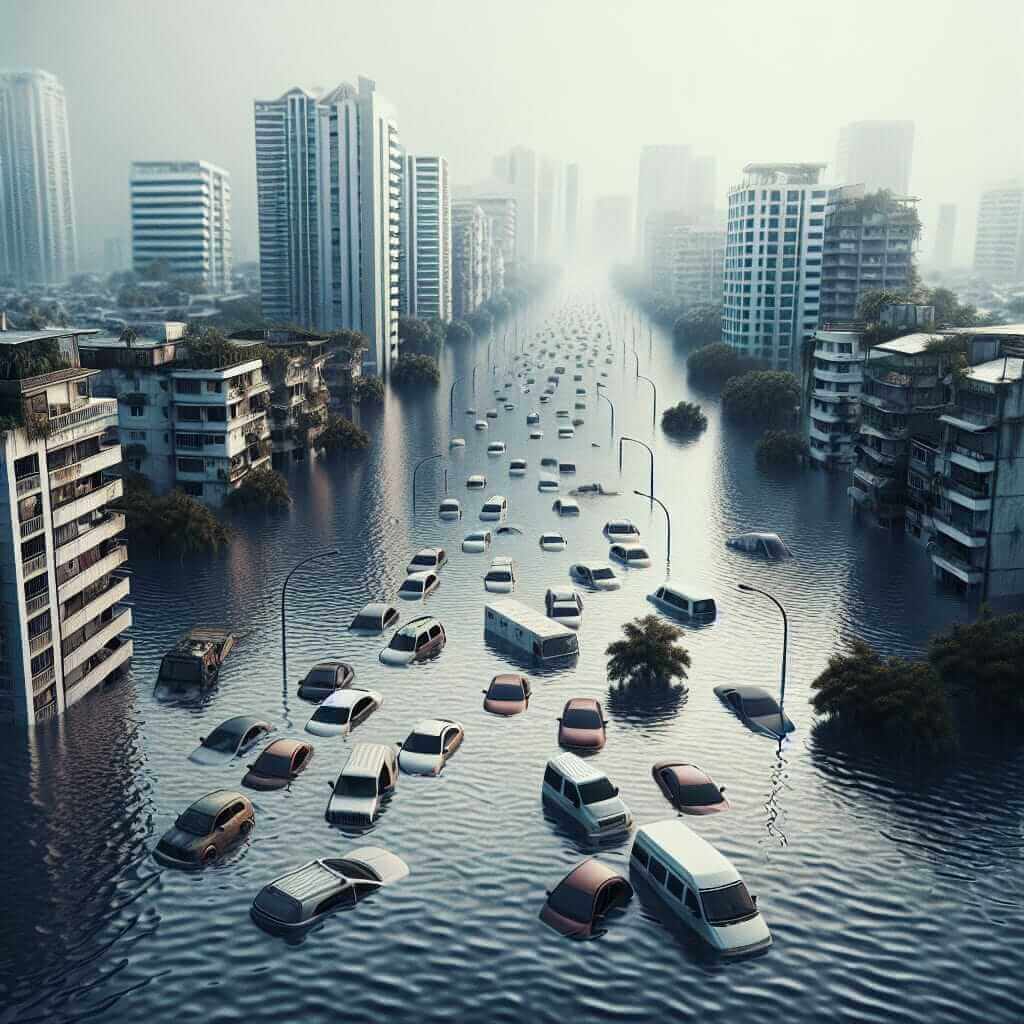The IELTS Reading section is a crucial part of the overall exam, assessing your ability to read and understand academic texts. One of the common topics often featured is climate change due to its current relevance and the wealth of information available. In this guide, we will explore the topic, “How does climate change affect the frequency of natural disasters?” This topic has appeared frequently in past exams and is likely to appear again due to its ongoing significance.
This article includes a sample IELTS Reading test, detailed answers, common mistakes, essential vocabulary, and useful grammar points.
Sample Reading Test: Climate Change and Natural Disasters
Passage
Climate change has been noticeably altering weather patterns and increasing the frequency of natural disasters. Scientists affirm that rising global temperatures, melting ice caps, and increased atmospheric moisture are contributing factors. These changes have led to more severe and frequent natural events such as hurricanes, floods, droughts, and wildfires.
Hurricanes, for instance, draw their energy from warm ocean waters. With rising sea temperatures, hurricanes can gain greater strength, becoming more destructive. The Atlantic hurricane season has witnessed unprecedented activity over the past decades, with records showing an increased number of Category 4 and 5 hurricanes.
Similarly, floods have become more frequent in areas that were previously less vulnerable. Increased rainfall, attributed to heightened atmospheric moisture, overwhelms rivers and drainage systems. Urban areas are notably affected due to poor infrastructure and inadequate drainage systems.

Droughts, on the other hand, are becoming more prolonged and severe. Hotter temperatures increase evaporation rates, leading to water shortages in many regions. Agricultural productivity suffers, and drinking water supplies become perilously low.
Wildfires have also surged in frequency and intensity. Higher temperatures and prolonged dry spells create ideal conditions for fires. Areas previously unaccustomed to such events are now facing them regularly, resulting in extensive damage to ecosystems and human settlements.
Questions
Multiple Choice
-
What is one major factor contributing to the increase in hurricanes?
a) Increased atmospheric pressure
b) Rising sea temperatures
c) Decrease in wind patterns
d) Lower ocean salinity levels -
What consequence does increased rainfall have, according to the passage?
a) Decreased agricultural productivity
b) More severe droughts
c) Overwhelmed drainage systems
d) Reduced river flooding
True/False/Not Given
- The Atlantic hurricane season has shown a decline in strong hurricanes over time.
- Urban areas are affected by increased rainfall due to effective drainage systems.
- Rising temperatures contribute to longer and more severe droughts.
Matching Information
Match the following natural disasters with their contributing factors:
- Hurricanes
- Floods
- Droughts
- Wildfires
a) Poor urban infrastructure
b) Higher ocean temperatures
c) Increased atmospheric moisture
d) Prolonged dry spells
Short-answer Questions
- Mention two effects of wildfires mentioned in the passage.
- Which natural disaster is associated with prolonged dry spells according to the passage?
Answers and Explanations
Multiple Choice
-
b) Rising sea temperatures
- Explanation: This is explicitly stated in the passage, indicating that hurricanes draw energy from warm ocean waters and become more destructive as sea temperatures rise.
-
c) Overwhelmed drainage systems
- Explanation: The passage mentions increased rainfall leading to overwhelmed rivers and drainage systems.
True/False/Not Given
-
False
- Explanation: The passage indicates an increase, not a decline, in the number of strong hurricanes in the Atlantic hurricane season.
-
False
- Explanation: The passage states that urban areas are affected due to poor infrastructure, not effective drainage systems.
-
True
- Explanation: The passage mentions that higher temperatures increase evaporation rates, leading to prolonged and severe droughts.
Matching Information
-
Hurricanes – b) Higher ocean temperatures
- Explanation: Mentioned in the passage as the reason hurricanes gain strength.
-
Floods – c) Increased atmospheric moisture
- Explanation: Increased rainfall due to atmospheric moisture leads to flooding.
-
Droughts – d) Prolonged dry spells
- Explanation: The passage correlates droughts with hotter temperatures and prolonged dry conditions.
-
Wildfires – a) Poor urban infrastructure
- Explanation: While poor infrastructure was mentioned for floods, wildfires are linked to higher temperatures and prolonged dry spells in the passage.
Short Answer
-
The effects of wildfires mentioned in the passage include extensive damage to ecosystems and human settlements.
- Explanation: Clear effects listed in the text.
-
Droughts
- Explanation: The passage talks about droughts in relation to prolonged dry spells.
Lessons Learned
Common Mistakes
- Misinterpreting the passage: Students may often confuse increase and decrease or other qualifiers.
- Matching headings or information incorrectly because of similar keywords rather than actual meaning.
Vocabulary
- Evaporation (n) [ɪˌvæp.əˈreɪ.ʃən]: The process of turning from liquid into vapor.
- Drought (n) [draʊt]: A prolonged period of abnormally low rainfall, leading to a shortage of water.
- Flood (n) [flʌd]: An overflow of a large amount of water beyond its normal limits, especially over what is normally dry land.
Grammar Focus
- Relative Clauses: Used extensively in academic writing to provide additional information.
- Example: Hurricanes, which draw their energy from warm ocean waters, are becoming more destructive.
- Structure: [Main Clause] + Relative Pronoun + [Extra Information]
Advice for High Scores in IELTS Reading
- Practice Regularly: Familiarize yourself with various question types and practice extensively.
- Time Management: Develop effective time management strategies to complete the reading section within the given time.
- Understanding the Context: Focus on understanding the overall passage, not just individual sentences or words.
- Expand Vocabulary: Improve your vocabulary range to better grasp and interpret academic texts.